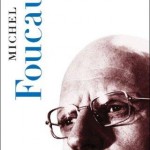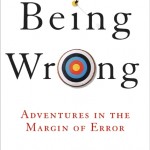Last night, I came across an article in The Chronicle Review that immediately caught my attention (yes, it made me curious). Entitled “In Praise of Tough Criticism,” this article argues for the value of tough, combative criticism over and against compassionate and supportive engagement with ideas. Even though warning bells went off in my head and one of my inner voices sang out (because my inner voices sing out, with lusty vibrato, of course), “Prrrroblemaaaatic!,” I kept on reading. Before getting to why and how I found this essay to be problematic, let me appreciate (as in, summarize) the author’s argument. Here it is, in a nutshell.
At the beginning of the essay, the author wants us to consider two typical ways in which to engage (or eschew) criticism in the academy. On one hand, we have Professor Jones. Jones is patient, friendly, compassionate, non-confrontational and, above all else, positive. Their mantra is: “If you don’t have something positive to say, then it is best not to say anything at all–at least not in public.” Jones is so invested in collegiality that they will decline to review a poorly written book by a colleague, rather than write anything “negative” about that colleague. Jones strongly dislikes (and avoids) harsh criticism–or criticism at all, for that matter; they understand it to always and only be harsh. On the other hand, we have Professor Smith. Smith likes to tell people they are wrong and has built a successful career doing just that. They understand criticism to be primarily concerned with both persuading others to agree with them and proving that ideas other than theirs are wrong. For Smith, criticism is about competition, being a brute and having strong (as in, not “wishy-washy”) ideas. They are very good at arguing. They like to say, “Public criticism is as valid as public praise.”
According to the author, we need to be more like Smith. While being compassionate and caring is nice, and could help foster more collegiality, it doesn’t encourage us to become better intellectuals (or critics). Rejecting the idea that compassion is an intellectual virtue, the author writes,
If a compassionate, caring form of criticism entails removing the “critical” from “critical exchange,” then I would rather see the field move toward a more combative, confrontational style–even if it means ruffling a few feathers.
The author’s big concern seems to be that compassionate criticism is not criticism at all. Academics like Jones “bend over backwards to praise books more than they deserve” and, when they do disagree, they are either quiet about it or offer only faint praise. This type of engagement is no serious engagement at all and leads to mediocre and banal criticism.
Towards the end of his essay, the author contrasts Professor Smith’s brave and brutal criticism with one other, seemingly inferior form of critique: anonymous blog/web comments. Drawing upon Foucault and his discussion of the “nameless voice” in The Archaeology of Knowledge, the author argues that unduly harsh comments posted anonymously on a blog are cowardly and “antithetical to critical dialogue.” He concludes his essay by encouraging critics (particularly literary critics) to stop being a Professor Jones and start being a Professor Smith:
We need to grow thicker critical skin. Why? Because critical behavior that always results in a chorus of affirmation is nothing more than conformity; because allowing views to persist that need to be challenged is nothing less than critical mediocrity; and because failure to tell our colleagues what we truly think about their work is simple dishonesty. A reshaped critical culture will help build a more robust, honest, and transparent academy.
While I agree with the author’s promotion of a robust, honest, and transparent academy and the need for scholars to be better (as in more seriously engaged and honest) critics, I disagree with both his approach to achieving this type of critical scholarship and his framing of the problem altogether. In presenting us with Professor Jones and Professor Smith, he offers two opposing options: either we are compassionate and eschew criticism in favor of supporting each other or we are combative and embrace harsh (but honest and responsible) criticism. Putting aside the extremely problematic gendered implications of the author’s favoring of the one position over the other (Professor Jones, the caring/nurturing/uncritical professor, is repeatedly referred to as a she and Professor Smith, the harsh, brutal, yet honest and full of intellectual integrity professor, is referred to as a he), I can’t help but wonder if these are our only options? Are we either compassionate or harsh, positive or honest? His articulation of the problem produces a very particular, and limited, vision of what criticism is, what it does and how it does it. Furthermore, it suggests that compassion, caring (and openness to other’s ideas) are all enemies of criticism. Here, let me elaborate. The author defines critique in the following ways:
- Aimed at fault finding and pointing out how an idea or an author are wrong
- Harsh, but honest
- Negative, not positive
- In opposition to compassion, caring, and nurturing support
- Demands that we take strong (and firm) positions on a topic and that we diligently attempt to convert/persuade others to our ways of thinking
- Demands that we stop being so soft and cowardly and develop courage and a thick skin
Wow, as I read over this essay again, I am struck by how much it seems to be a veiled critique of feminism and a call to return to a more “manly” (and, therefore, proper) form of critique. It’s not just that he refers to Jones as a she (and therefore, pins the “bad” behavior on the woman); it’s that his reference to Jones as a she further reinforces the already strong (and essentialized) connection between caring/ nurturing and women, a connection that is part of a dangerous hierarchy of reason over emotion and critical thinking over feeling. On top of that, his language of combat and courage in opposition to compassion and friendly engagement, immediately conjures up images of boys (the warriors) versus girls (the mushy, touchy-feely types). He almost (but doesn’t quite) seem to say: Come on men! Are you going to let those ladies strip us of our manly criticism? Of course not! Grow some thick skin (and a pair, while you’re at it) and start fighting! This is war!
But seriously, I appreciate reading this essay because it brings up some very important issues concerning critique and, importantly for me, care. While the author positions care and critique against each other in this essay, I have been thinking a lot lately (especially as I attempt to write my blog mash-up about troublemaking, care and feminist ethics) about how we might link them together. In my own work, I want to argue that care and critique (as a form of making and staying in trouble) are connected and not in opposition. But, such a move requires that we rework our understanding of critique and criticism. I’m glad that the author brought up Foucault. I want to look briefly to him too in order to point to an alternative way of imagining what criticism is and what it can and should do.
 In much of his later work, his “turn to ethics,” Foucault is interested in imagining a different way of engaging in critique. Since I am running out of energy (and time without the kids), I need to keep my description brief for now. Instead of providing much explanation, I want to offer a few passages from Foucault as a response to critique as agonism, antagonism, fault finding, and harsh/brutal honesty. I think, in some ways, Professor Smith is who Foucault imagines as the polemicist when he writes about critique in “Polemics, Politics, and Problematizations.” He writes:
In much of his later work, his “turn to ethics,” Foucault is interested in imagining a different way of engaging in critique. Since I am running out of energy (and time without the kids), I need to keep my description brief for now. Instead of providing much explanation, I want to offer a few passages from Foucault as a response to critique as agonism, antagonism, fault finding, and harsh/brutal honesty. I think, in some ways, Professor Smith is who Foucault imagines as the polemicist when he writes about critique in “Polemics, Politics, and Problematizations.” He writes:
The polemicist proceeds encased in privileges that he possesses in advance and will never agree to question. On principle, he possesses rights authorizing him to wage war and making that struggle a just undertaking; the person her confronts is not a partner in the search for truth but an adversary, an enemy who is wrong…For him, then the game consists not of recognizing this person as a subject having the right to speak but of abolishing him, as interlocutor, from any possible dialogue; and his final objective will be not to come as close as possible to a difficult truth but to bring about the triumph of the just cause he has been manifestly upholding from the beginning (Ethics 112).
I wonder, in his attempts to persuade others of his position, does Professor Smith leave time/space to listen to other perspectives? Is he willing to relent his position if proven wrong or must he steadfastly hold onto it as a matter of courage, fortitude and intellectual integrity?
Foucault contrasts the polemicist with the problem poser (or what I like to call dun dun duuunnn: The Problematizer. Right now FWA is in a camp where they talk about and create their own comic books. His super hero is “Fishy man.” I think mine is “The Problematizer.” I can already imagine the super cool comic book. But what would she wear and what would her super-hero powers be?). He writes:
…my attitude isn’t a result of the form of critique that claims to be a methodical examination in order to reject all possible solutions expect for the valid one. It is more on the order of “problematization”–which is to say, the development of a domain of acts, practices, and thoughts that seem to me to pose problems for politics.
In posing problems, one is not merely pointing out the faults of a system in order to judge that it is wrong and should be corrected. Instead posing problems, and giving serious critical attention to those problems, could enable us to engage in experimental (and potentially productive) conversations about what is being done and how we could not do it in this way or that way.
Now, Foucault is talking specifically about politics and political judgments (particularly in relation to what is to be done in situation x or y). So, my applying his words to literary criticism might not totally work, or even be fair. However, Foucault’s call to think about the implied goal of critique (winning a battle) and its implications for those engaged in critique, are helpful as we attempt to think about critique outside of the framework of either compassion or serious intellectual and critical engagement.
I want to conclude my list of Foucault passages with one that points to a different way of imagining critique and what it can or should do. This one is from “The Masked Philosopher,” perhaps one my favorite Foucault essays.
I can’t help but dream about a kind of criticism that would try not to judge but to bring an oeuvre, a book, a sentence, an idea to life; it would light fires, watch the grass grow, listen to the wind, and catch the sea foam in the breeze and scatter it. It would multiply not judgments but signs of existence; it would summon them, drag them from their sleep. Perhaps it would invent them sometimes–all the better. All the better. Criticism that hands down sentences sends me to sleep; I’d like a criticism of scintillating leaps of the imagination. It would not be sovereign or dressed in red. It would bear the lightening of possible storms (Ethics 323).
I really like this passage. It speaks to me and what I want to do with my own critical thinking. Being critical can require that we point out the faults in an argument or an idea, but surely that’s not all that being critical does or requires of us. As Foucault suggests in this passage, being critical doesn’t mean we have to wage a war against others or their ideas. And it doesn’t demand that we shut down other possibilities, condemning them with our judgments about how/why they are wrong. Critique/criticism can open up possibilities and wake up new ideas. Instead of draining us and making us weary from battle, it can energize us and give us renewed strength by introducing other ways of being. For me, this type of critique is caring and compassionate and, most importantly, critical.
Note: This entry was helpful as I struggle to figure out what to do with my essay on feminist ethics, care and troublemaking. While this entry remains somewhat unfinished (and perhaps underdeveloped), it speaks to and connects many different ideas I have about caring. confrontation, critique, and troublemaking. These ideas, which have been brewing for years, first came up in my disseratation. This entry also gave me a great idea for a kids’ book: The Adventures of the Problematizer. Okay, I don’t like that title, but you get the idea.



